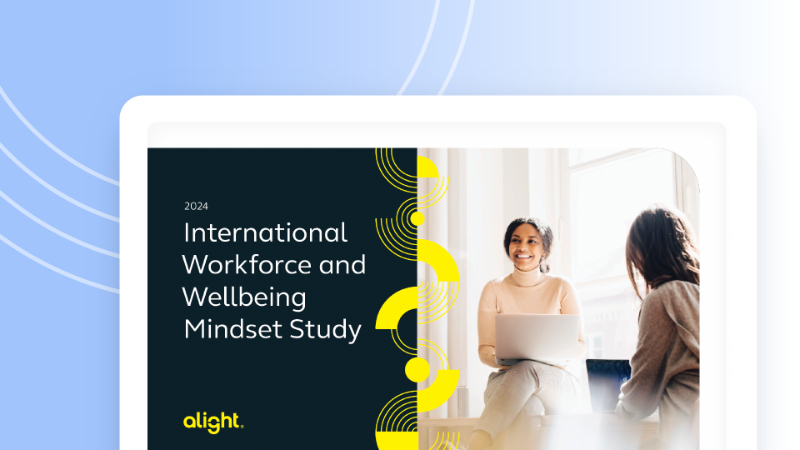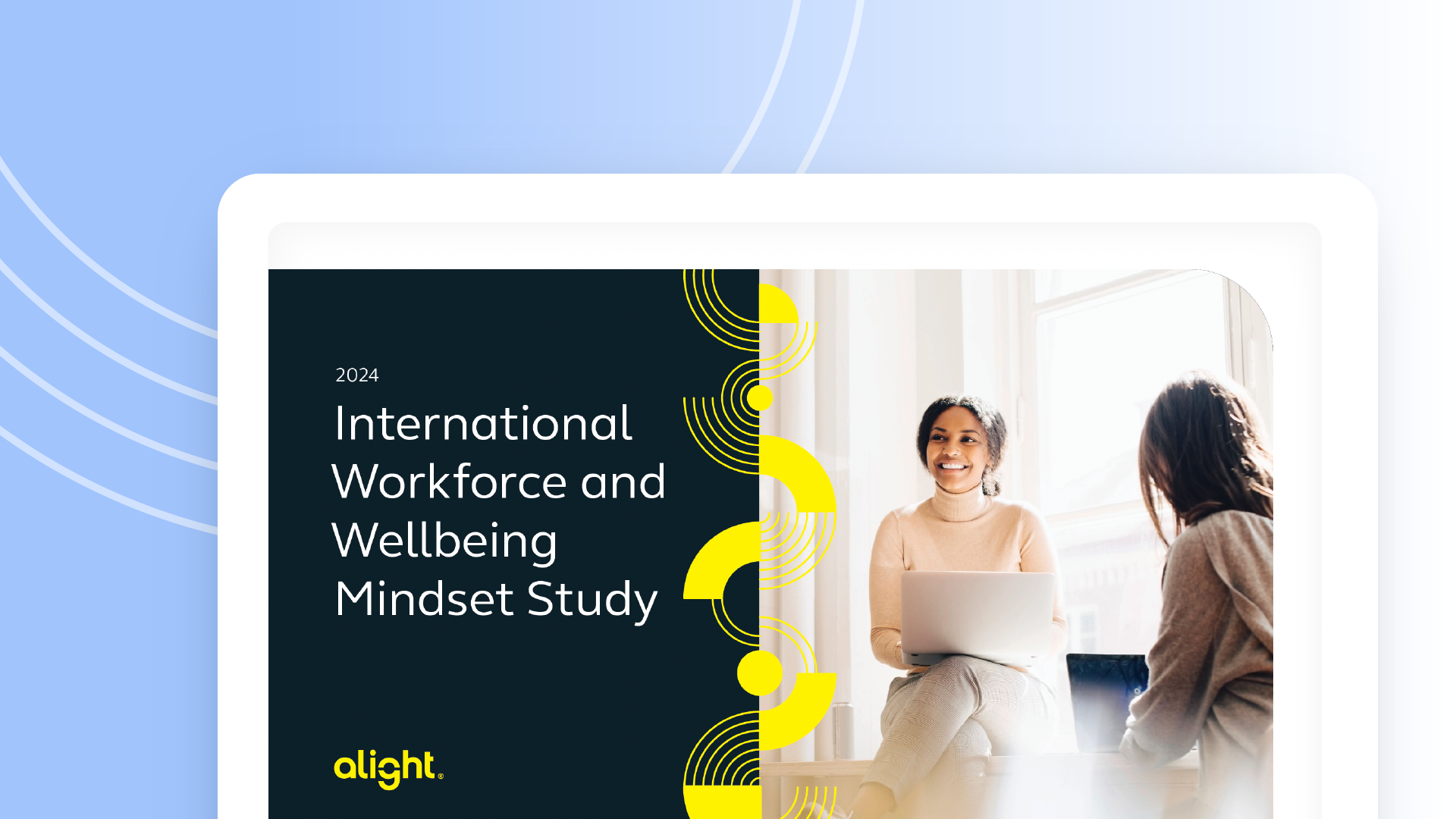
Today’s workforce is the most age-diverse in history, spanning five generations—the Silent Generation (born before 1945), Baby Boomers (born 1946 to 1964), Generation X (born 1965 to 1980), Millennials (born 1981 to 1996) and Generation Z (born after 1997). Along with that comes different perspectives and life experiences that spur healthy debates, lead to innovative approaches and drive creative solutions. For all their differences, however, the generations don’t vary much in their perspectives of the employee experience.
Across all age groups, roughly seven in 10 workers rate their employee experience as good, great or awesome, according to the 2024 Alight International Workforce and Wellbeing Mindset Study (Mindset Study). Yet significant differences emerge when it comes to how the generations view their personal wellbeing, how confident they feel about their ability to make decisions that impact their health, wealth and wellbeing and the kind of support they want from their employer.
Millennials express the most confidence in their employer, with 56% agreeing the company genuinely cares about their wellbeing. Boomers are more skeptical, however, with just over one-third (36%) believing their company’s wellbeing benefits significantly impact their lives. Gen Z stands out as the least self-reliant, with only 59% saying they feel responsible for their own health and wellbeing.
Generational disparities in perceptions of wellbeing
Generational differences shape how employees engage with wellbeing programs, creating challenges and opportunities for employers. While Gen Z and Millennials tend to embrace employer-led initiatives, Boomers and Gen Xers often view these programs as less relevant to their specific needs.
Younger employees crave ease of use and clarity. In fact, a lack of understanding is cited as the top barrier to participation by many members of Gen Z. By contrast, older workers often point to irrelevance as their primary reason for disengagement, highlighting the need to tailor programs to diverse life stages and circumstances.
Generational disparities are also evident when it comes to financial wellbeing. Alarmingly, employees approaching retirement, particularly Gen Xers, are not significantly more confident about their financial security. Caught in the “sandwich generation,” many Xers are caring for both children and aging parents, leaving over 60% worried about their ability to amass enough retirement savings to carry them through their golden years.
The vast majority of Boomers have already reached retirement age, but many are not financially prepared to make the leap. Nearly half (44%) express concerns that the money they have or will save won’t last. Employers can help alleviate these concerns by providing targeted resources that support financial planning and relieve intergenerational financial stress.
Confidence in health-related decision-making is also affected by generational differences. Overall, 58% of survey participants regret at least one health-related choice in the past year — the highest level since Alight began tracking this data in 2019. While just over one-third (34%) of Boomers express such regrets, that number soars to 65% among Gen Z and Millennials, likely reflecting inexperience in navigating complex systems. Missteps, such as relying on unqualified advice or rushing into treatments without doing adequate research, are particularly prevalent among younger workers.
This lack of confidence is exacerbated by high stress levels. Across generations, one in six workers report experiencing extreme stress, often leading to burnout. Women and younger employees are more likely to experience unhealthy levels of stress. Among women, nearly half (48%) report symptoms of burnout, while 16% of Gen Z employees experience severe, persistent burnout requiring intervention.
Employers can play a pivotal role in alleviating stress and burnout by offering holistic mobile benefits platforms with high-touch (human) navigation assistance. Such platforms have been shown to deliver a measurable impact: 35% of employees at organizations providing these tools report no symptoms of burnout, compared to 30% at other employers.
Crafting a multigenerational wellbeing strategy
A multigenerational workforce reflects the diversity of society, encompassing a broad spectrum of perspectives, skills and experiences. By investing in personalized wellbeing strategies, leveraging technology and fostering inclusion, companies can address the challenges of a multigenerational workforce and unlock its full potential by ensuring every generation feels valued and empowered to contribute their best.

To support a diverse workforce, employers must develop multifaceted wellbeing programs that address generational differences while fostering a shared culture of care.
This can be accomplished by adopting a strategy that includes:
- Personalization
- Blending AI with human interaction to meet varying preferences
- Relevant and tailored communication
- Generationally inclusive policies and workplace cultures
- Addressing the unique challenges faced by generations
Investing in navigation support services brings a lot of value to participants, regardless of their age, as eight in 10 Gen Z, Millennial and Gen X employees who have used personalized support for navigating the health system and costs found the resource valuable. Even more impressive, 90% of Boomers feel the same.
For more insights, along with actionable steps for crafting an effective multigenerational wellbeing strategy, check out my recent HR.com article, “The Aging Workforce: HR Strategies for a Multigenerational Workplace.”

2024 Alight International Workforce and Wellbeing Mindset Study
The study’s goal is to understand employee perceptions to help employers optimize their employees’ wellbeing and experiences to improve engagement, productivity and performance.


